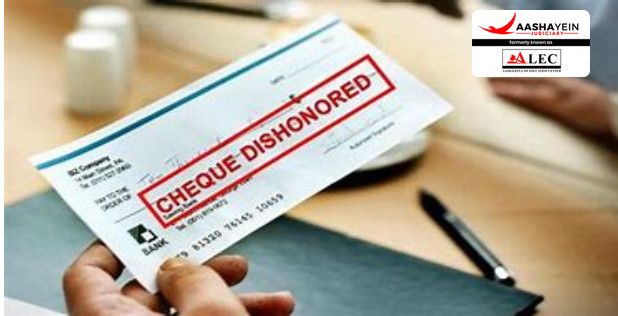Facts
The appellant filed a complaint under Section 138 of the Negotiable Instruments Act, 1881, against the respondent for failing to fulfil a financial obligation. The respondent had issued three cheques to partially settle the debt arising from the purchase of cement from the appellant. However, these cheques were returned by the bank with the remark “payment stopped by the drawer.” The main issue before the Supreme Court was whether a cheque returned due to a “stop payment” order would be considered as dishonoured under Section 138 of the Negotiable Instruments Act, 1881.
Issue
The issue before the Apex Court was “Whether mere endorsement of the Bank payment stopped is sufficient to entertain the complaint u/s 138 of NI Act?”
You can also read the Blog by visiting [Blog]
For more information, visit [Aashayein Enquiry Section]
Arguments
A case under Section 138 of the Act was argued, claiming that the offense was not committed because there was not enough money in the account to cover the cheque, or because the amount exceeded the agreed limit set with the bank.
Analysis of the court
The Supreme Court observed that if the payee or holder receives notice not to present a cheque for encashment after it has been issued, it defeats the purpose of Section 138. However, if the payee or holder still presents the cheque to the bank, and the bank returns it due to such instructions, Section 138 will not apply.
Therefore, instructing the bank to stop payment immediately after issuing a cheque, which is against a debt or liability of the drawer, goes against the intent of Sections 138 and 139 of the Act. This would allow the drawer to avoid legal consequences even if an offense is deemed to have occurred.
Therefore, the decision of the Apex Court was widely accepted, emphasizing that Chapter XVII, which includes Sections 138 to 142, is aimed at maintaining trust in business transactions through cheques and ensuring the smooth functioning of banking operations. If someone issues a cheque to settle a legitimate debt but instructs their bank to “stop payment” before the payee or holder presents it for collection, they could be penalized under Section 138 of the Negotiable Instruments Act, 1881. Section 138 applies only when a cheque is dishonored. This section considers it a criminal offense for the drawer to request their bank to stop payment before the cheque is deposited by the payee or holder in the proper manner.
The court concluded that Section 138 of the Negotiable Instruments Act, 1881, does not assume that the drawer of the cheque is dishonest. It also ruled that a cheque will be considered dishonored under this section if the bank refuses to pay it after receiving a stop payment order, especially when the cheque was issued to settle a debt or liability. This judgment has important consequences for the business world.

